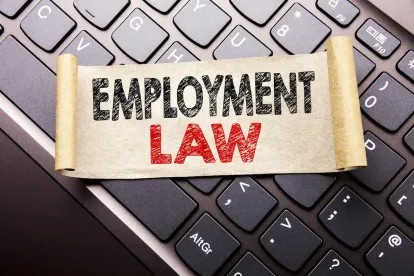National Labor Relations Board (NLRB) Chairman John Ring has announced that revisions to the Board’s election rules are a “long-term” action item. This may indicate the revisions to the Obama-era election rules (in effect since April 2015) are less of a priority for the upcoming year than other Board initiatives. Ring also publicly stated that rulemaking on the election rules will occur on an issue-by-issue basis, rather than all at once. Among other major changes, the Obama-era election rules significantly shortened the time between the filing date of an election petition and the date the election is held. The rules, often referred to as the “quickie” or “ambush” election rules, have been criticized as a hindrance to employers’ ability to respond to and educate employees about union organizing activity.
A Washington federal judge has found that the state’s unionized public employees are not entitled to a refund of union fees paid prior to the U.S. Supreme Court’s decision in Janus v. AFSCME Council 31, No. 16-1466 (June 27, 2018). Washington State public employees filed a class action seeking repayment of the dues paid to the American Federation of State, County and Municipal Employees (AFSCME) Council 28 prior to the Janus ruling. In Janus, public sector employees who are non-members of a union argued that they cannot be legally required to pay agency or “fair share” fees as a condition of employment. The U.S. Supreme Court agreed, concluding the fees were forced speech in violation of the First Amendment. (See our article on Janus, Supreme Court Rules Unconstitutional Mandatory Fees Imposed on Non-Union, Public Sector Employees.) In Danielson v. Inslee, No. 18-cv-05206 (W.D. Wash. Nov. 28, 2018), the District Court found the union acted in good faith when collecting the fees, because it could not have known the Supreme Court would overturn a decades-old precedent permitting public sector unions to charge compulsory union fees. The District Court ruling is the first decision on the merits in a number of pending suits asking courts to compel public sector unions to repay fees that were paid prior to Janus.
NLRB employees have protested a decision by Board Chairman Ring and General Counsel Peter Robb to reopen NLRB staff union contracts. NLRB employees, represented by the NLRB Professional Association, publicly protested a decision by Chairman Ring and General Counsel Robb to reopen the labor contracts covering the employees’ terms and conditions of employment. The protest, which included leafleting, took place outside the American Bar Association’s 12th Annual Labor and Employment Law Conference in San Francisco, which Ring and Robb attended. The leaflets claimed that employee confidence in the NLRB had dropped significantly. The leaflets also alleged that Ring and Robb “engaged in a systematic attack” on NLRB employees and “the agency as a whole.”
Members of the AFL-CIO’s own staff have spoken out about the need to improve the terms and conditions of work for the union’s employees. According to media reports, during contract negotiations with the employees’ staff union, the AFL-CIO proposed a three-year pay freeze, less-consistent hours, cuts to sick leave, and weaker seniority rights. AFL-CIO workers are represented by the Office and Professional Employees International Union (OPEIU). The OPEIU-represented employees have voted to authorize a strike against the AFL-CIO.
It appears the Senate will not vote on NLRB Member Mark Gaston Pearce’s re-nomination to the NLRB before the end of this Congressional term. The Senate’s Health, Education, Labor and Pensions (HELP) Committee ended its final markup of the 115th Congress without taking a vote on the nomination. Despite criticism by business groups that Pearce’s decisions on the Board have been anti-business, President Donald Trump nominated Pearce for a third term on the NLRB earlier this year. Some say Pearce’s confirmation may still be possible: as part of a deal in which Democrats will agree to waive objections to Trump’s judicial nominations.








 />i
/>i

